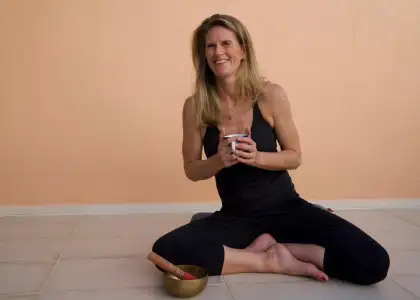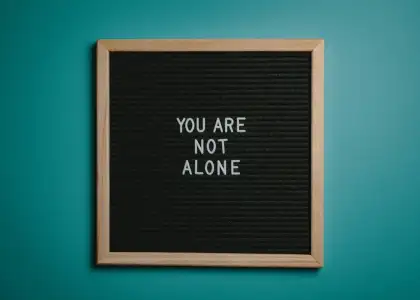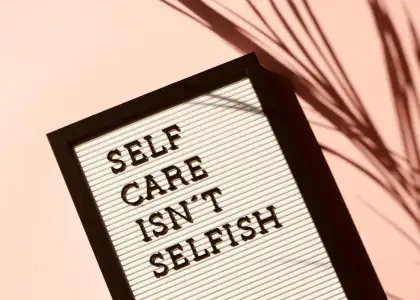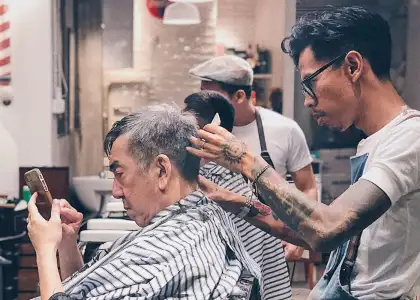World Mental Health Day: Top Tips for Maintaining your Mental Health

World Mental Health Day is celebrated on October 10 every year. It’s a time to become more aware of our needs, reassess our priorities, and put the spotlight on issues surrounding mental health in the workplace, at home, and with the wider community.
In Hong Kong’s fast-paced society, long work hours, a competitive academic environment, and small living spaces all present unique challenges to our mental well-being.
The Beat Asia spoke to mental health experts from Hong Kong to learn practical tips on how to stay mentally healthy in the Hong Kong hot-house, and pave the way for a happier, more balanced life.
1. Re-Centering Yourself

First up, be prepared to give yourself some self-love! In our busy lives, we are bombarded with distractions and often self-medicate by scrolling on our screens.
John Mok-Lamme, Counsellor for Adolescents, Adults and Couples at Maple Tree Counselling says we need to take time to cognitively reframe how we view self-care.

“Instead of seeing self-care as selfish, we can remind ourselves that we are working to increase our capacity for loving others and that we are modeling self-care for those around us."
He suggests identifying the origins of your stress, and remaining open about your feelings. “Let go of the judgements and ask yourself, ‘What am I feeling and what do I want? You may be shocked how far this takes you.’”

One of the simplest ways to begin with self-care is to write your thoughts down. Maitreyi Mehta, Relationships Counsellor and Director of Connect Counselling, says keeping a daily journal can have a profound impact.
“We each carry around a lot of mental clutter, and we don’t know why or how it’s impacting us.” She points out that the writing process – whether on paper or on a screen, can help people take incremental steps towards self-understanding.
2. Exercise Regularly

Everyone knows about the mind-body connection: exercise helps us focus, boosts our mood, and improves our sleep. It seems like a no-brainer, but how much exercise do we really need to stay mentally fit?
Yoga Practitioner Charlotte Douglas highlights the protective benefits of yoga as a tool to keep us mentally healthy.

She says the positive effects of yoga can be felt almost immediately. “I think the key thing about it is, once you get yourself moving, a lot of other things fall into place – clarity, perspective, creativity, fluidity. A cascade of knock on effects arise out of moving our bodies.”
Douglas stresses that yoga is an accessible form of exercise that can be enjoyed by a full range of body types, fitness levels, and age groups.
“It’s such a misconception that yoga is about being bendy and flexible. I’m not interested in flexibility. The practice of Yoga is so much more than the postures, it’s around a practice of coming into a state of awareness.”
She believes yoga’s emphasis on being "in the moment" can be very helpful for people suffering from anxiety. “When we are in the present moment, the past and the future have less of a grip on us and we are less inclined to cascade into catastrophic thinking."
However, she stresses that yoga is not a cure-all for mental health problems and should only be used alongside consultation with medical professionals.
“I think it’s really important that we don’t use toxic positivity as some form of medical gaslighting around people with significant mental health problems.”
Maitreyi Mehta from Connect Counselling agrees exercise is a great way to escape negative cycles of stress. However, she warns about going too far.
“You also see it on the other end of the spectrum where people have become relatively obsessed with their physical well-being to the point it becomes more of a burden on them, which is going to lead to more burn out.”
3. Getting Sufficient Quality Sleep

Studies show that poor sleep disrupts our central nervous system and information processing, which can increase our anxiety and emotional distress. However, finding a one-size-fits-all solution for better sleep is challenging.
Maitreyi Mehta says stress is a primary reason her clients have difficulty sleeping. She recommends working with a sleep practitioner for a head-on approach to address these issues. She also advises examining daily habits that might impact sleep quality, such as bringing your phone into the bedroom.
“One thing a person can do is keep a sleep log and track what it is they are doing and eating before they go to sleep,” she says.
Dr. Alex Li, Director of St John’s Cathedral Counselling Service advises taking a practical approach to resolving sleep issues. “The aim is to not put sleep on a pedestal and not to focus on achieving sleep at all costs.”

Instead, Dr. Alex suggests we wake up at the same time each day no matter how many hours of sleep we get and try our best to function as well as we can in the given circumstances. "Through this, we will be able to discover what our natural tiredness levels are and sleep become achievable."
4. Watch Your Diet

Mental health experts agree that diet can significantly impact a person’s mental health. A poor diet can have a dramatic impact on your concentration span, mood, and energy levels.
Maitreyi Mehta believes improving diet is a way to escape the stress cycles of life. “A faulty diet, or a diet that doesn’t serve us just ends up feeding into that cycle more.”
Dr. Alex Li agrees, saying, “Food is the fuel that we use to run our physical bodies. If this fuel is of poor quality, it will negatively impact the efficiency and sustainability of our body.”
“Quality is more important than quantity when it comes to food. When we eat and drink to excess it affects our ability to function the way we want,” he adds.
5. Nurture Your Social Network

Today, despite our constant connectivity through social media, it seems genuine social connections have become harder to achieve. Yet, building real relationships and finding a sense of belonging in a community are essential for our mental health.
According to Maitreyi Mehta, social connection provides us with a sense of belonging. “This belonging contributes to our feeling of safety and being part of something and I think that is really essential.”
“Being able to check in with friends and family is the most productive way to create a supportive environment for one’s mental health," she adds.
Dr. Alex Li thinks technological advancements have made social connections more superficial than before. He stresses humans have an innate need for social connection, “When we have a good network of friends and family it can really ground us and provide support especially during tough times.”
He acknowledges that social networks aren’t always available to everyone. In such cases, he recommends we practice slowing down the mind and observing our thoughts, feelings, sensations, and memories in a detached manner, without judgment or criticism.
6. Try to Maintain a Work Life Balance

Hong Kong is an incredibly busy city with long work hours that can be all consuming. It’s easy to get swept up in the demands and expectations of others, but it’s crucial to carve out time for yourself outside of work. Engaging in hobbies, spending time with friends, and finding moments for relaxation are essential to maintaining a healthy and stable identity.
Connect Counselling’s Maitreyi Mehta recommends finding an activity that allows you to shut off everything else. This could be a hobby, or talking to a friend, or just spending the time alone.
John Mok-Lamme from Maple Tree Counselling advises making personal boundaries clear.
“Don’t do any more work than you have to. Don’t let the buzz of the place make you deaf to your desires.”
He acknowledges this may be hard to do, especially when others are counting on us, in which case, he recommends implementing tiny rituals of sanity into your day-to-day life. “Taking walks at noon, phoning a friend, eating lunch in a park, or hitting the gym near the office can help make it saner.”
Stay Connected and Keep Up With:

Charlotte Douglas at Charlotte Douglas Yoga. Book a session here, or find out more on Instagram.
Maitreyi Mehta with Connect Counselling. Book a session here, or find out more on Instagram.
John Mok-Lamme with Maple Tree Counselling. Book a session here, or find out more on Instagram.
Dr. Alex Li with St John’s Cathedral Counselling Service. Book a session here, and check out his biography here.
Subscribe to The Beat's newsletter to receive compelling, curated content straight to your inbox! You can also create an account with us for free to start bookmarking articles for later reading.



























































































